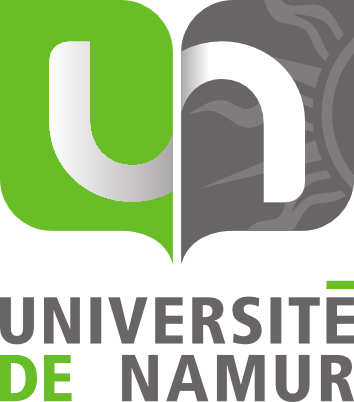Défense de thèse de doctorat en sciences biologiques
Study of cell cycle regulators and DNA repair following alkylating stress in Brucella abortus
Date : 11/12/2018 14:00 - 11/12/2018 16:00
Lieu : Amphithéâtre L12, rue Grafé, 5000 Namur
Orateur(s) : Katy PONCIN
Organisateur(s) : Xavier DE BOLLE
Jury
Patrick VIOLLIER (Université de Genève), Ivan MATIC (Faculté de médecine, Paris Descartes), Bernard HALLET (UCL), Régis HALLEZ (UNamur) président, Xavier DE BOLLE (UNamur) promoteur
Résumé
All living organisms must ensure that their DNA will remain protected against stresses. One DNA damaging stress that is predicted to be encountered by intracellular bacteria is alkylating stress, resulting from the peroxidation of lipids, the N-nitrosation of metabolites or the presence of week endogenous alkylating agents. However, despite previous attempts, to our knowledge, the occurrence of alkylating stress inside host cells still needs to be experimentally demonstrated.
We studied the response of the class III pathogen Brucella abortus inside host cells, and we showed, for the first time, that an intracellular bacterium is meeting alkylating stress inside its host. Indeed, the construction of a fluorescence-based reporter system detecting alkylation events on DNA allowed us to find out that B. abortus is mainly subjected to alkylation stress during the first stage of its infection, while it is still residing inside its endosomal Brucella-containing vacuole (eBCV). In order to better assess the environment in which Brucella is residing at that time, a probe was designed so it could be covalently attached at the bacterial surface and report, based on fluorescence emission, the level of N-nitrosation events occurring inside the eBCV. This technique revealed that N-nitrosation do take place inside this compartment in host cells. However, the exogenous production of alkylating agents was innocuous to Brucella. Instead, we found that the stress felt by the bacterium was mainly due to the endogenous formation of N-nitroso compounds, which were produced by bacterial metabolism. Most bacteria possess a DNA repair pathway that is specialized in coping with alkylated DNA. Interestingly, B. abortus does not possess this system. Instead, we found that Brucella is relying on its SOS system, as well as the essential well-conserved transcription factor GcrA to regulate a series of genes involved in DNA repair.
La défense est publique
Télecharger :
vCal
